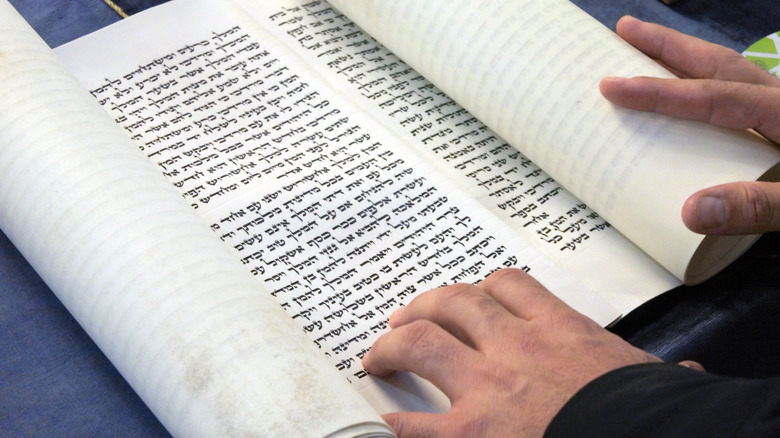Why People Eat Hamantaschen For Purim
Hamantaschen are inextricably linked with the festivities of Purim, which will be observed between the sunset of March 16 and through the 17th. The name directly translates as Haman's pockets and are eaten as a sign of disrespect to Haman who wanted to wipe out the Jewish people, per Food and Wine. Specifically, you are supposed to be biting into Hamans favorite hat, which the three cornered pastry resembles.
Forward notes another tradition called hamantaschen "oznei haman," which means Haman's ears. This is based on another old Jewish tradition that Haman had his ear cut off after execution. The piece also offers the less colorful explanation that in the 18th century, mohntaschen, or "poppy pockets," suddenly became popular in Germany and Eastern Europe. People wanted to eat these delicious new deserts during Purim, so suddenly they developed an association with Haman's hat. Either way, hamantaschen have now become an utterly traditional part of Purim's festivities.
The festive treat hamantaschen has ties to a dark story
The feast of Purim celebrates the thwarting of an attempt to kill the Jewish people by Haman. The story is recorded in the Book of Esther.
In the story, as summarized by Chabad.org, the Persian king Ahasuerus married Esther after executing his first wife Vashti for refusing his command to show off her beauty before a bunch of drunk guests. Esther was Jewish, but Ahasuerus seems to have overlooked this because when his first minister Haman asked for permission to kill all the Jews, Ahasuerus granted it.
Haman had a particular axe to grind because there was a law that required everyone to bow down before him. Mordechai, Esther's cousin and a fellow who had previously brought to light a plot to kill the king, refused to bow to Haman because it went against his beliefs. Mordechai asked Esther to bring up the fact that both the queen and Mordechai himself, who had saved the king from danger, were Jewish. She courageously followed through, and the decree to kill the Jews was overturned and Haman and his children were killed instead. Now their name lives on as favored treats for Purim.

